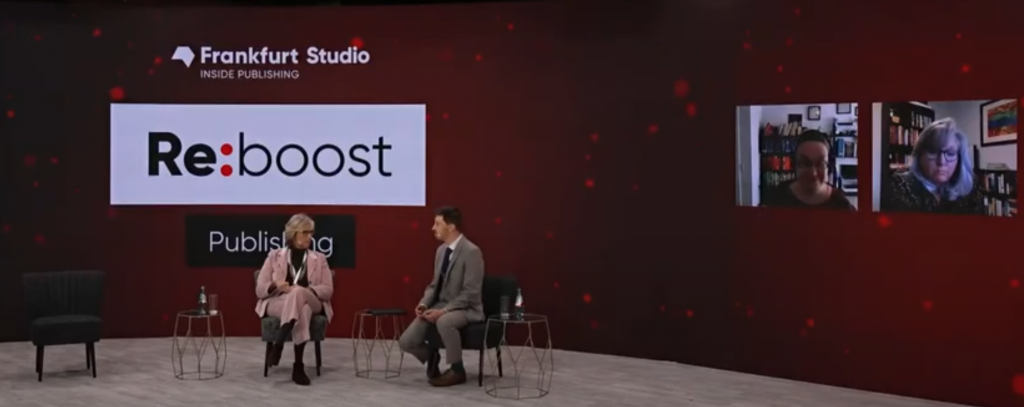Organized by the Frankfurter Buchmesse, the World Intellectual Property Organization (WIPO), the IPA, the Federation of European Publishers (FEP), the session also took place within the framework of the Aldus Up Program supported by the European Commission. There were several speakers, including Christina Mussinelli of the Fondazione LIA; Laura Brady, Director of Cross Media at House of Anansi Press; and Rachel Comerford, Senior Director of Accessibility Outreach and Communication at MacMillan Learning.
The virtual session began with a short discussion on the requirements and characteristics of the European Accessibility Act – a European directive that will require, by 2025, for the publishing industry to produce born-accessible digital publications. In other words, accessibility should be included in everything from the project design and production to every other activity related to digital publication. The only exception are ‘micro-enterprises’; publishers whose revenue amounts to less than 2 million euros or who have less than 10 employees.
However, Ms. Musinelli emphasized that the pivot towards accessibility in publishing is not complex. While it may need some training and knowledge, cultivating a more inclusive mindset and company culture will lead to higher quality content and benefit everyone – not just individuals who are visually impaired, but the publishers and their value chains as well. In Italy alone, 28,000 titles of e-books are already accessible and available – demonstrating that the process is possible for both big and small publishers.
Subsequently, the discussion moved from highlighting what needs to be done towards celebrating publishers and initiatives who are already embracing accessibility. Sylvie Forbin, Deputy Director General of the Copyright and Creative Industries Sector at WIPO, presented the Accessible Books Consortium International Excellence Awards. The WIPO-led ABC annually recognizes a publisher and a project initiative that demonstrate outstanding achievements in advancing accessibility for persons who are print-disabled. A jury of experts selected this year’s winners among many excellent nominees.
The finalists in the publisher category included House of Anansi Press in Canada, Taylor and Francis Group from the UK, and the University of Michigan Press from the US. Taylor and Francis Group were announced as the winner, with Ms. Forbin noting how the jury was very impressed by their innovative approach in requiring their authors to include alternative texts for images, graphs and diagrams, when submitting their manuscripts. Brianna Walker, Head of Content Management at Taylor & Francis Books stated that “Taylor & Francis is honored to accept the 2021 International Excellence Award for Accessible Publishing” and that it represented more than 2 years of dedicated work.
The finalists in the the initiative category were the Dorina Nowill Foundation for the Blind from Brazil; the National Network for Equitable Library Services from Canada; the Sao Mai Center for the Blind from Vietnam; and the Interdepartmental Steering Committee for the Promotion of Born-Accessible e-Books to People with Disabilities from France. The winner was revealed to be the National Network for Equitable Library Services (NNELS) in Canada, whose manager, Daniella Levy-Pinto, expressed that she was “honored to accept the award on behalf of NNELS. I am totally blind and I understand first-hand the impact of barriers to reading, so it is incredibly meaningful for me to be here today.”
Finally, two guest publishers – Laura Brady of Anansi Press and Rachel Comerford of MacMillan Learning – shared their experiences, the challenges they’ve faced in helping make accessible books a reality, and the changes towards accessibility they have observed on both a small and a large scale. Both speakers affirmed that their respective publishing houses would be ready for the implementation of the EAA in 2025 and gave publishers just beginning on their accessibility journey advice to succeed. Both speakers recommended designating someone to be the accessibility ‘busybody’ within the firm – in other words, investing and training someone to be specialized in integrating accessibility into the publishing process.
The session concluded with a reflection that accessibility is not about shifting paths or doing something different. On the contrary, moving towards accessibility is about integrating it into the very process of production and creation.
You can watch the full session here:

